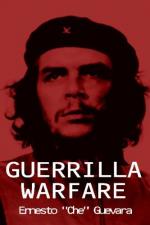
|
| Name: _________________________ | Period: ___________________ |
This test consists of 5 multiple choice questions, 5 short answer questions, and 10 short essay questions.
Multiple Choice Questions
1. At the early stages of the guerrilla war, training will primarily consist of what?
(a) Academic training.
(b) Direct learning.
(c) Marksmanship.
(d) Marching.
2. What service should be in direct contact with enemy fronts according to Guevara?
(a) Intelligence.
(b) Ground.
(c) Naval.
(d) Operational.
3. When did the Cuban Missile Crisis take place?
(a) 1975.
(b) 1952.
(c) 1962.
(d) 1959.
4. What industry does Guevara state will be centered all labor connected with the equipping of the mules, such as making their shoes?
(a) Copper works.
(b) Iron works.
(c) Steel works.
(d) Tin works.
5. What organizations will not operate within the framework of guerrilla warfare until the last stages according to Guevara?
(a) Agrarian organizations.
(b) Government organizations.
(c) Workers' organizations.
(d) Military organizations.
Short Answer Questions
1. What term refers to exclusive control of a commodity or service in a particular market?
2. In order to ensure the health of the controlled zones, Guevara notes that clean water and what are essential?
3. Due to health reasons, Castro transferred his responsibilities to the First Vice-President in 2006, which is who?
4. Guevara writes that in a period of war subject to attack by the military often many lives depend upon what?
5. The two fundamental industries that are needed for the revolution are arms making and what?
Short Essay Questions
1. How does training progress throughout the guerrilla movement, according to Guevara?
2. What does Guevara write of the role of women in guerrilla movements?
3. What guidelines does Guevara instill for supply lines for the guerrilla forces?
4. What skill does Guevara insist training begin with? Why?
5. What was the aim of the bulk of reform under Castro's regime?
6. What changes took place after Fidel Castro's rise to power, as described in the Epilogue?
7. What industries are important in addition to the two essential ones Guevara discusses? Why?
8. What will the bulk of training new recruits consist of, according to Guevara? What is incorporated as the movement progresses?
9. How does Guevara broach the subject of the screening of recruits?
10. What does Guevara close with in the Epilogue regarding his vision for the future?
|
This section contains 810 words (approx. 3 pages at 300 words per page) |

|




